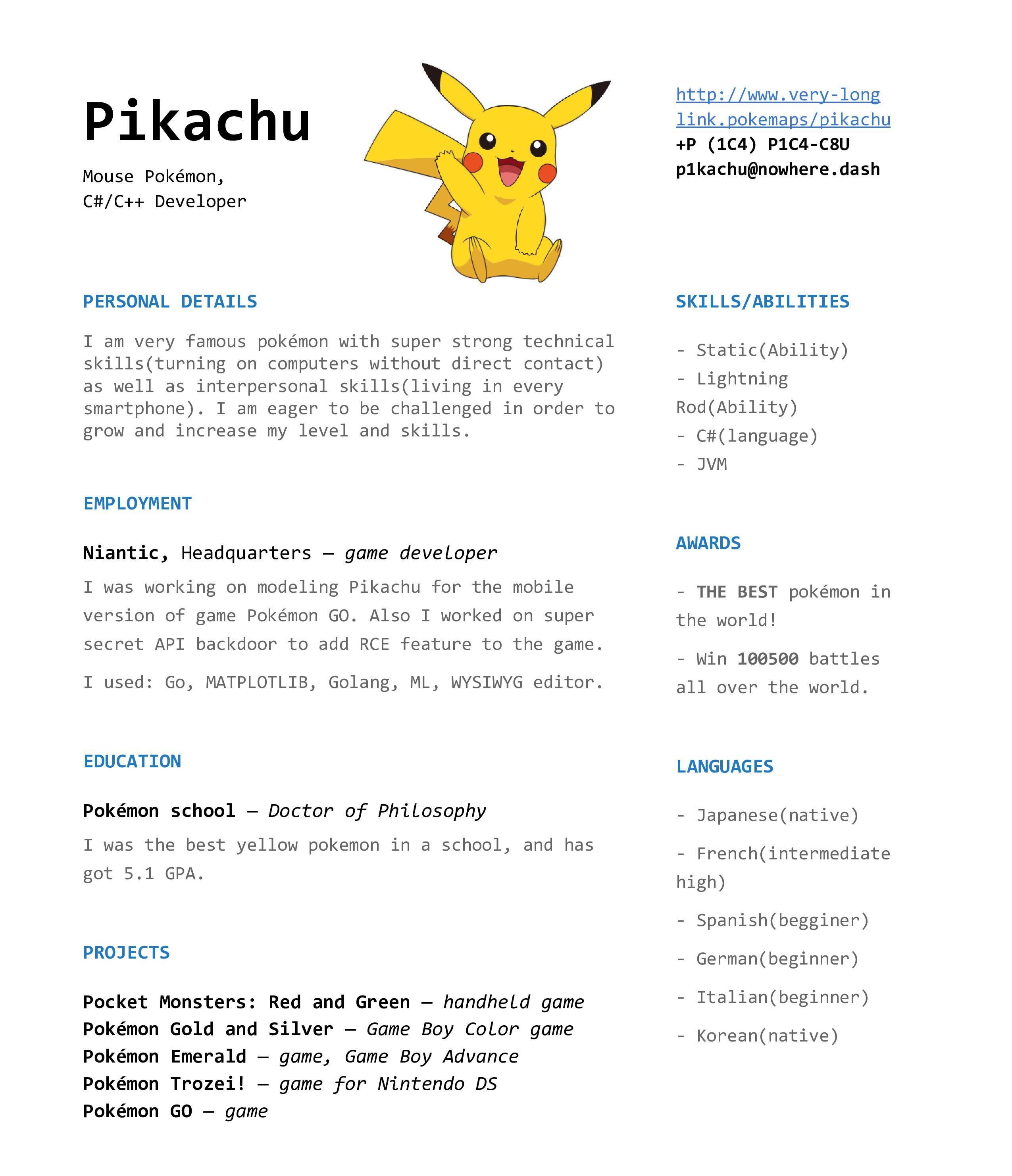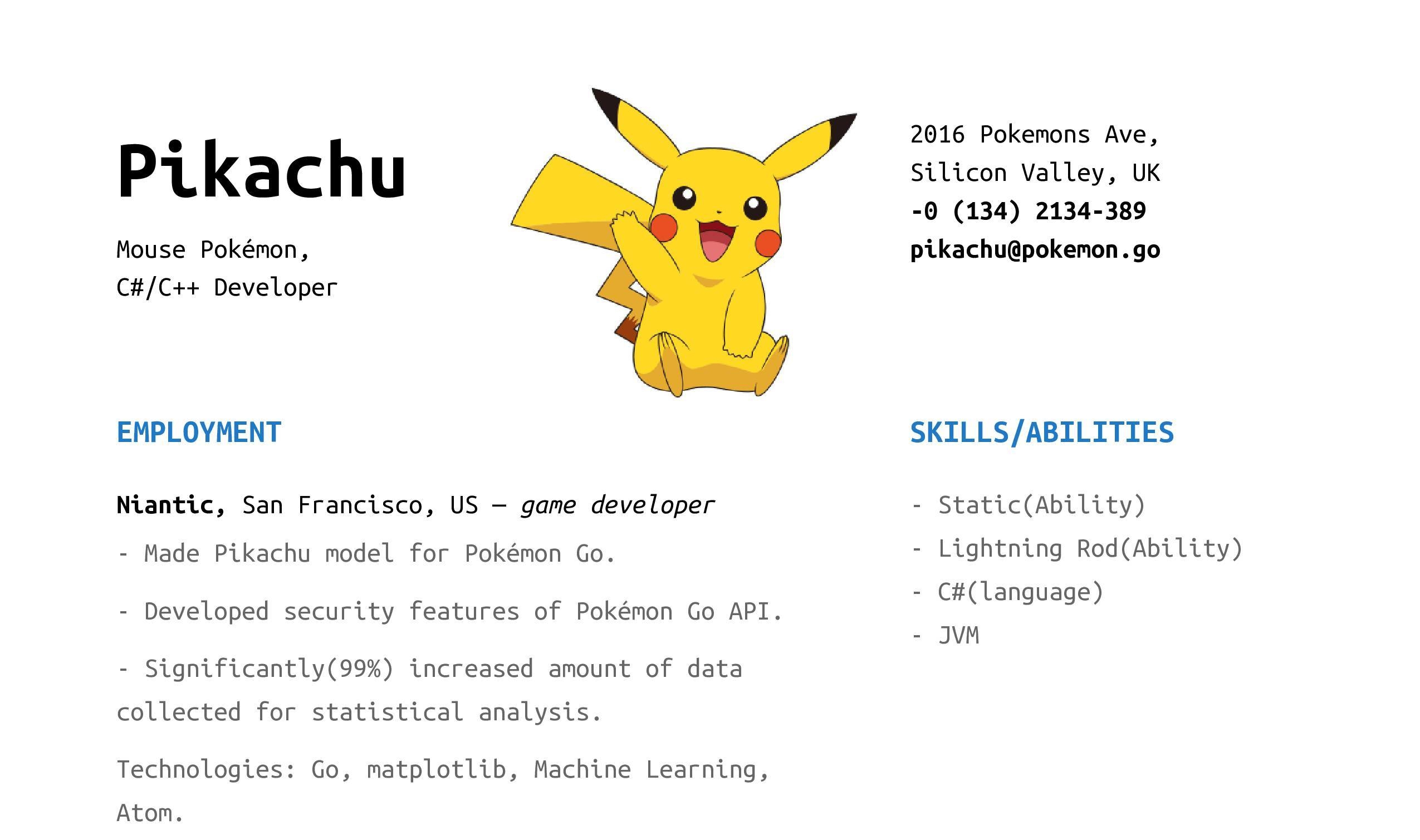Technical Resume Analysis
Do you want to get internship opportunity? find a job? in US?
Then you should be ready to make resume your signature attach your resume
to every letter you send.
You can find plenty of articles about “How to write resume” by Google-ing. But I want to point out some common mistakes people do.
NOTE! All information here is based on my experience @ Google, so you should take it as advice, not as a rule of thumb.
My goal is to show how to find and correct mistakes, so today we are going to analyze real resume, almost real :)
Meet our assistant
Let’s have a look at Pikachu’s resume. He is trying to get an internship at the Big Search Engine company.

Wow, it’s so cool! Ready? Let’s start:
-
Avoid links, unless you have REAL reason to use them. Though link provides additional ‘hypertextual’ information, resume is bad place for them(try portfolio instead). In some rare cases(e.g. scientific articles), you can include link in your resume, but it should be short(see bit.ly, goo.gl) and clear.
-
Use standard format for address and phone number. Recruiter can use information from your resume to contact you by phone. Using standard phone number format will guarantee that all phones will recognize it. A simple search can help you figure out what format you should use.
-
Get yourself one good-looking email address. Resume is a document in official style. Do you really think that
p1kach00@nowhere.dashis what HR people want to see? You can set up mail forwarding to synchronize several email accounts. -
Usually you don’t need to have ‘personal details’ part. This part should include very important information about you, not just: ‘strong analytical skills’, ‘problem solving skills’, etc.
How about ‘Nobel Laureate in Maths’? -
Include enough information about the place you want to point to. That advice matches every place you want to put into resume. Where did you go to school? How about work experience? Just try to look at Wikipedia.
-
Write about your achievements. The most important information in your ‘experience’ part is achievements you accomplished. You can write what you ‘was doing’, but more valuable is what you ‘have done’. Though it’s a bit controversial point.
-
Avoid non-informative words and repetitions. These words drives HR people crazy:) Really.
What is the difference between Go and golang? Is there non-mobile version of Pokemon Go?See more examples here. -
Omit ‘I’. Do you remember that rule from school? Try to rephrase each sentence, so that it starts with ‘Developed’, ‘Achieved’, ‘Increased/Reduced’, bet you have got the point. Have you noticed, how many times Pikachu used ‘I’?
-
Avoid TYPOS. What do you think can ordinary recruiter get from your resume except general information?
No, not tech abbreviations and abstractions you used in project description.Of course you are right. BTW, how many typos can you find in Pikachu’s resume? -
Do not use abbreviations and tech terminology a lot. Yes, your application will be processed by special committee, but before it will be stored only on the desktop of the recruiter.
Not everyrecruiter can understand that ML is Machine Learning, and not Memory Leak. -
Care confidential information. Pikachu should be a very good developer to work on so critical part of project as API security, but Big Search Engine company will not hire him. How do you think, what is he going to add to resume after internship?
Oh, stop it! I have forgot the first tip. Let’s stop here and see what is
our Pikachu’s resume now looks like.
